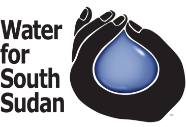Water Institute update
The Water Institute of South Sudan, a program of WFSS, recently celebrated the graduates of Low-Cost Technologies for Rural Water Supply training programs with a special seminar and ceremony hosted by WFSS and attended by members of the South Sudan government and training partners.
Project Background
While SDG 6 is the most recent iteration of the United Nations’ objective to address water-related issues, the topic has long been a concern at the United Nations. Water and sanitation are at the core of sustainable development, and the range of services they provide underpin poverty reduction, economic growth, and environmental sustainability. However, over-exploitation, pollution, and climate change have led to severe water stress in localities worldwide in recent decades.
The Low-Cost Technologies for Rural Water Supply training program, funded by NUFFIC’s TMT program, MetaMeta, SMART Centre Group, and About Education, aims to equip Water Institute staff and the private sector with essential skills and knowledge to implement sustainable and cost-effective water supply solutions in rural areas.
Water Institute Seminar and Graduation Ceremony
The seminar and graduation ceremony for the second training, Low-Cost Technologies for Rural Water Supply, aims to address and increase access to water supply and sanitation in rural communities in South Sudan. Organized by the Water Institute, this significant event took place on Friday, August 23, at the Water for South Sudan compound, Wau, Eastern Bank, Western Bhar El Ghazal State.
The day started with a seminar, which was opened by the Hon. Magot Maker, Chairperson of Water Resources and Irrigation Committees at the National Legislative Assembly, who expressed his appreciation to the Water Institute for its hospitality. He then went on to narrate the activities the Water Institute initiated that will benefit South Sudanese at large.
Reiner Veldman, on behalf of Tailor-Made Training (TMT) partners MetaMeta and About Education, gave an overview of the project and introduced the the TMT program (slides, video, and Q&A).
Rope Pump Production Training
Pumps can be produced after successful training in fabricating pumps made from pipes and old tires using a welding machine. Participants were able to produce eight rope pumps that are ready to install in the newly drilled or upgraded existing wells.
Manual Drilling (Mzuzu)
During the manual drilling practices, the trainees managed to drill and upgrade 12 wells and install a rope pump at the household level, which works very well in providing water supply.
Sanitation, Hygiene, Household Water Treatment, and Gender in WASH
The series aims to allow trainees to follow a training (a protocol or a program) that matches their knowledge and experience and to train them to apply the new knowledge and skills in daily practice.
Didactic Skills Training
The goal of this training is to develop or improve the didactic skills of staff, enabling them to conduct training for students or communities.
Water for Agriculture
The training aims to empower Water Institute trainees to conduct future training for the private sector and communities.
Water Institute celebrated student’s achievements and the successful completion of the training program. The event included a demonstration session from graduates on the different SMARTech for rural water supply. Additionally, esteemed guests from various sectors shared their perspectives on the importance of low-cost technologies in improving rural water supply.
Stay tuned and follow us on our social media platforms for more exciting updates about the Water Institute. Thank you for your commitment to supporting this vital work.






